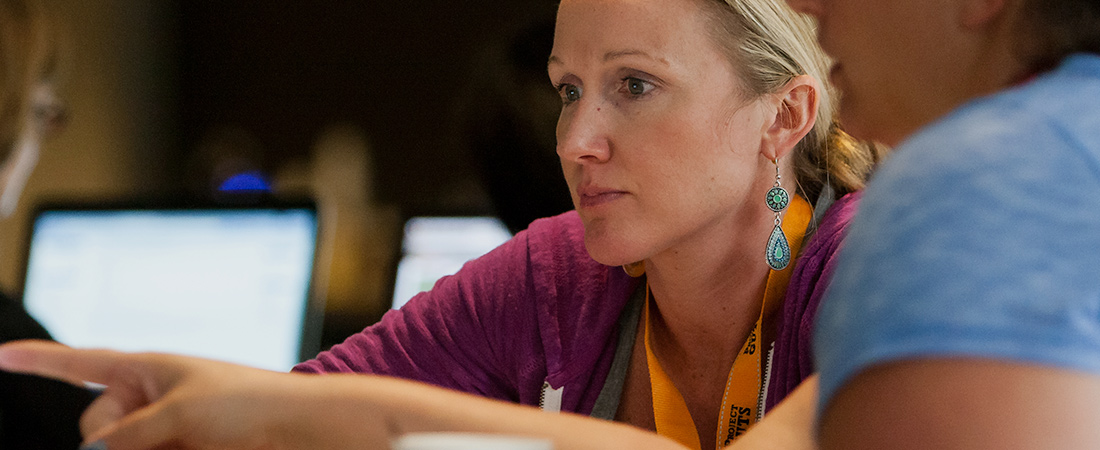
In the United States, EDC’s teacher professional development programs help educators improve their craft.
EDC develops practitioner-informed professional development and resources that build professional and organizational capacities. We engage educators, health providers, and community agency staff in communities of practice that reflect current findings on effective strategies to support adult learning and systems improvements.
We develop and deliver training and technical assistance to frontline staff in classrooms, clinics, and communities that support their use of evidence-based practices to enhance services. We also build policymakers’ capacity to collect, analyze, and use data to guide decision-making.
Learn about EDC’s work to strengthen early childhood interventions with Continuous Quality Improvement.
Related Content
A Second Chance at School in Mali
In Mali, accelerated education is helping thousands of children get back to school.
Helping All Children Learn and Thrive
EDC’s David Jacobson discusses his ideas for changing—and improving—early childhood services.
Addressing the Opioid Crisis through Home Visiting
Home visiting programs are critical to supporting children affected by opioid misuse, says Loraine Lucinski.
Crisis, Conflict, and Resilience
In times of crisis or conflict, some communities struggle while others pull together. It’s all about resilience.
Accelerating Education in Liberia
An estimated 300,000 Liberian children do not attend school. What’s being done to provide more access to education?
3 Ways Schools Can Support Children Affected by the Opioid Crisis
Schools are uniquely positioned to address the needs of children exposed to trauma, says Shai Fuxman.
Projects
Resources
Here are a few of our resources on capacity building for individuals, organizations, and systems. To see more, visit our Resources section.
The Package for Improving Education Quality (PIEQ) project aims to improve French and math learning in the Democratic Republic of the Congo. Through collaboration with DRC's National Ministry of Education (MNE), PIEQ builds the capacity of teachers, schools, and communities in three Congolese provinces to increase student learning by improving teaching and the school environment.
This resource library on the CADRE website highlights opportunities, resources, and projects that aim to increase involvement for underserved and underrepresented populations at all levels of STEM
The Center for Strategic Prevention Support (CSPS) at EDC developed this interactive communications toolkit to help substance abuse prevention practitioners create clear, accurate messages that wou
An engaging conversation which combines the expertise of a clinician with the perspective of a police chief, this webinar recording provides guidance on Comprehensive Strategies for Preventing
This report presents detailed descriptions of five guidelines for schools and districts to consider as they draw upon interactive mobile technologies to promote students’ mathematical thinking.
This report spotlights how Heywood Hospital is using the Elder Mistreatment Emergency Department Toolkit to identify and address elder mistreatment.
This case study examines how support from EDC’s First 10 initiative has advanced East Providence’s goals to strengthen and align its early education and support structures, improving services for children and families.
Interactive audio instruction (IAI) is a distance-learning technology that provides educational services, often to schools and school systems worldwide.
This report spotlights how St. Joseph’s University Medical Center is using the Elder Mistreatment Emergency Department Toolkit to identify and address elder mistreatment.
This 2-page document summarizes the successes of the Decentralized Basic Education Program Objective 2, which helps communities improve their schools, teachers improve their teaching, and students